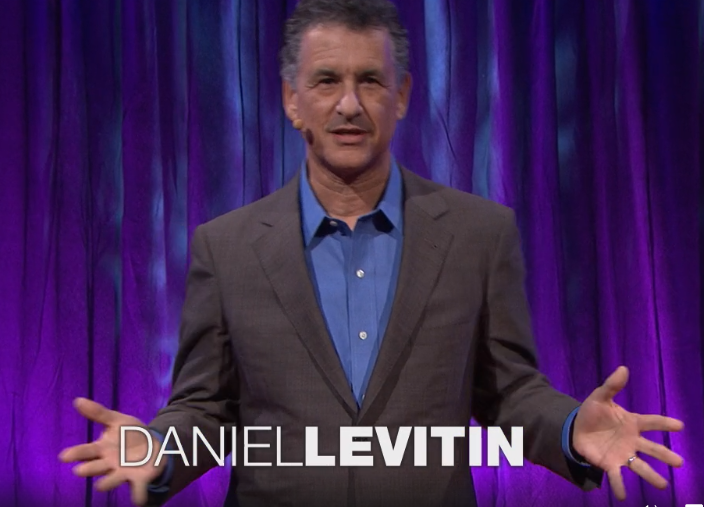How to stay calm when you know you'll be stressed
You're not at your best when you're stressed. In fact, your brain has evolved over millennia to release cortisol in stressful situations, inhibiting rational, logical thinking but potentially helping you survive, say, being attacked by a lion. Neuroscientist Daniel Levitin thinks there's a way to avoid making critical mistakes in stressful situations, when your thinking becomes clouded -- the pre-mortem. "We all are going to fail now and then," he says. "The idea is to think ahead to what those failures might be."
19,833,855 views | Daniel Levitin • TED London
Daniel Levitin
Neuroscientist
Daniel Levitin incorporates findings from neuroscience into everyday life.
A few years ago, I broke into my own house. I had just driven home, it was around midnight in the dead of Montreal winter, I had been visiting my friend, Jeff, across town, and the thermometer on the front porch read minus 40 degrees -- and don't bother asking if that's Celsius or Fahrenheit, minus 40 is where the two scales meet -- it was very cold. And as I stood on the front porch fumbling in my pockets, I found I didn't have my keys. In fact, I could see them through the window, lying on the dining room table where I had left them. So I quickly ran around and tried all the other doors and windows, and they were locked tight. I thought about calling a locksmith -- at least I had my cellphone, but at midnight, it could take a while for a locksmith to show up, and it was cold. I couldn't go back to my friend Jeff's house for the night because I had an early flight to Europe the next morning, and I needed to get my passport and my suitcase.
00:56
So, desperate and freezing cold, I found a large rock and I broke through the basement window, cleared out the shards of glass, I crawled through, I found a piece of cardboard and taped it up over the opening, figuring that in the morning, on the way to the airport, I could call my contractor and ask him to fix it. This was going to be expensive, but probably no more expensive than a middle-of-the-night locksmith, so I figured, under the circumstances, I was coming out even.
01:24
Now, I'm a neuroscientist by training and I know a little bit about how the brain performs under stress. It releases cortisol that raises your heart rate, it modulates adrenaline levels and it clouds your thinking. So the next morning, when I woke up on too little sleep, worrying about the hole in the window, and a mental note that I had to call my contractor, and the freezing temperatures, and the meetings I had upcoming in Europe, and, you know, with all the cortisol in my brain, my thinking was cloudy, but I didn't know it was cloudy because my thinking was cloudy.
02:01 (Laughter)
02:03 And it wasn't until I got to the airport check-in counter, that I realized I didn't have my passport.
02:08 (Laughter)
02:10
So I raced home in the snow and ice, 40 minutes, got my passport, raced back to the airport, I made it just in time, but they had given away my seat to someone else, so I got stuck in the back of the plane, next to the bathrooms, in a seat that wouldn't recline, on an eight-hour flight. Well, I had a lot of time to think during those eight hours and no sleep.
02:31 (Laughter)
02:32
And I started wondering, are there things that I can do, systems that I can put into place, that will prevent bad things from happening? Or at least if bad things happen, will minimize the likelihood of it being a total catastrophe. So I started thinking about that, but my thoughts didn't crystallize until about a month later. I was having dinner with my colleague, Danny Kahneman, the Nobel Prize winner, and I somewhat embarrassedly told him about having broken my window, and, you know, forgotten my passport, and Danny shared with me that he'd been practi
主题:How to stay calm when you know you'll be stressed压力会损害大脑
幸福大叔发表于 2022-07-17 18:13
下一页 (1/10)


